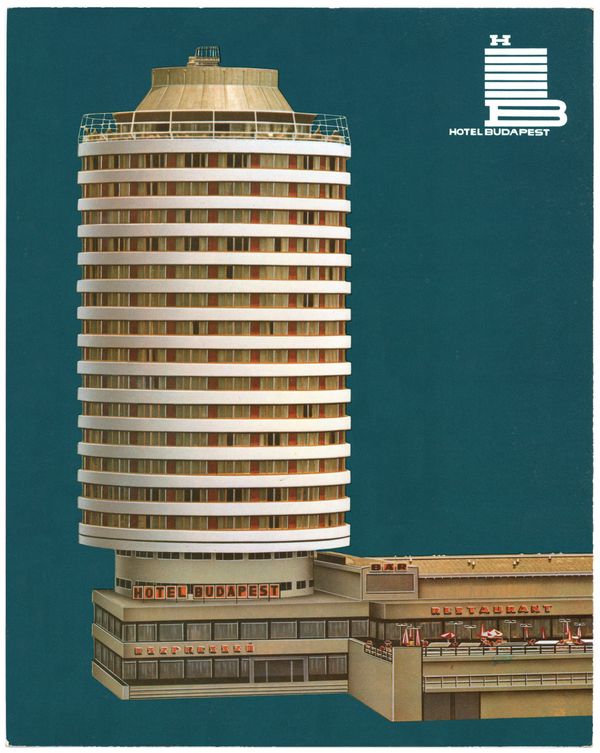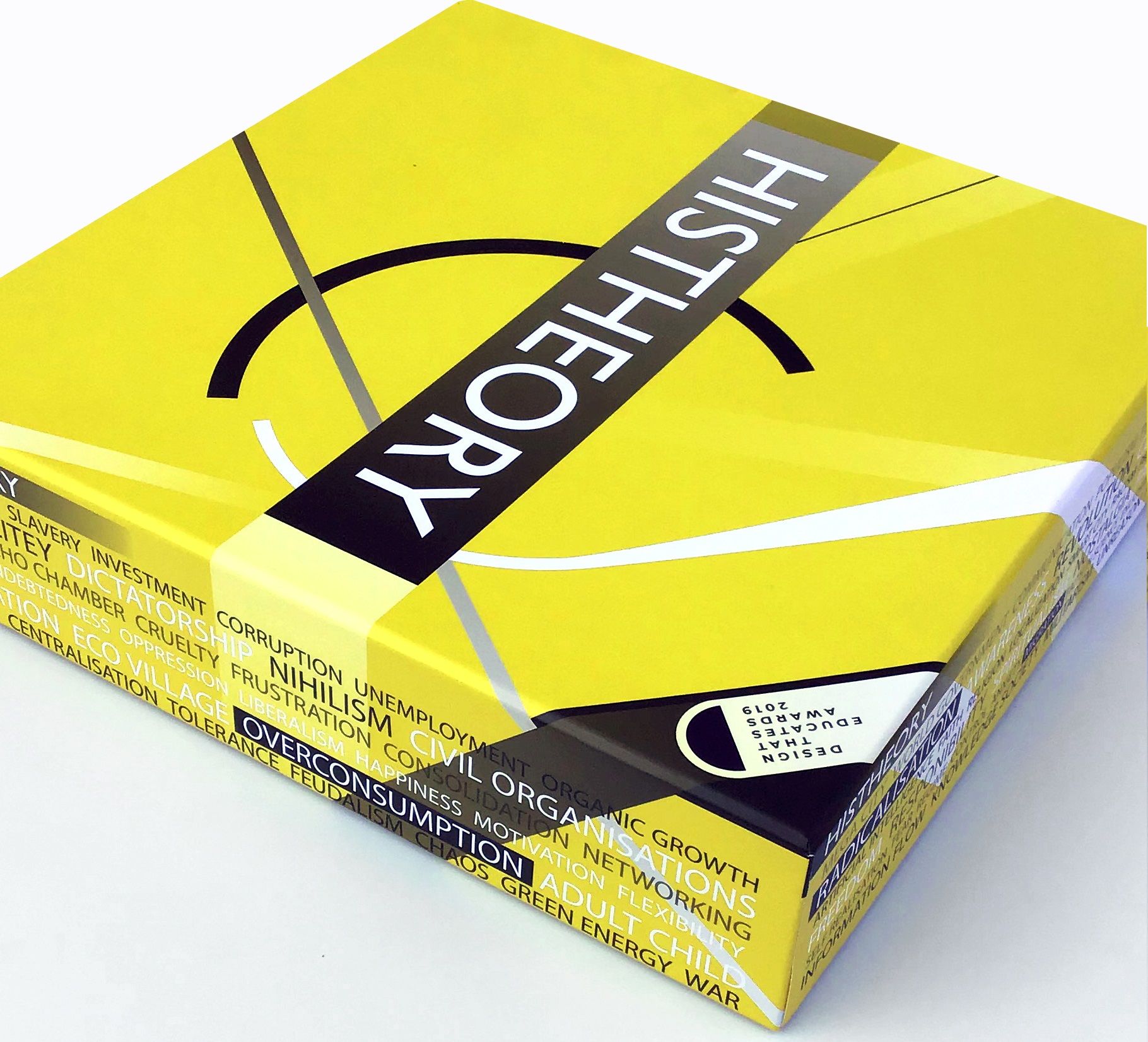Dubbed Histheory, this boardgame allows us to model the possible outcomes of the pandemic, the French Revolution or even alternative endings for Game of Thrones. We can play with friends or family members, but it could perhaps be the most powerful in reviving history teaching and developing the ability to think in contexts. We asked the designers about the versatile game.
When we play with Histheory, we can build networks with the help of sociological, political and psychological expressions that model historical events and their alternative outcomes, complex mechanism shaping our present or utopias. Even though rounds can be entertaining or even competitive, the yellow box offers much more than to be simply regarded as an average boardgame. It has an immense role in education, for instance – no wonder the game won the German Design That Educates Award for the designers in 2019.
When and how did the design process start? – I ask designers Gyöngyi Bokor and Edina Mihálkovics. A few years ago the topic of utopist philosophies came up at a workshop in Zsennye – this is what provided the starting momentum to Gyöngyi and her team. They started working on building a network that Gyöngyi modelled with wooden balls and sticks at the time, while she was continuously collecting terms they could use – this is how the boardgame came into being.
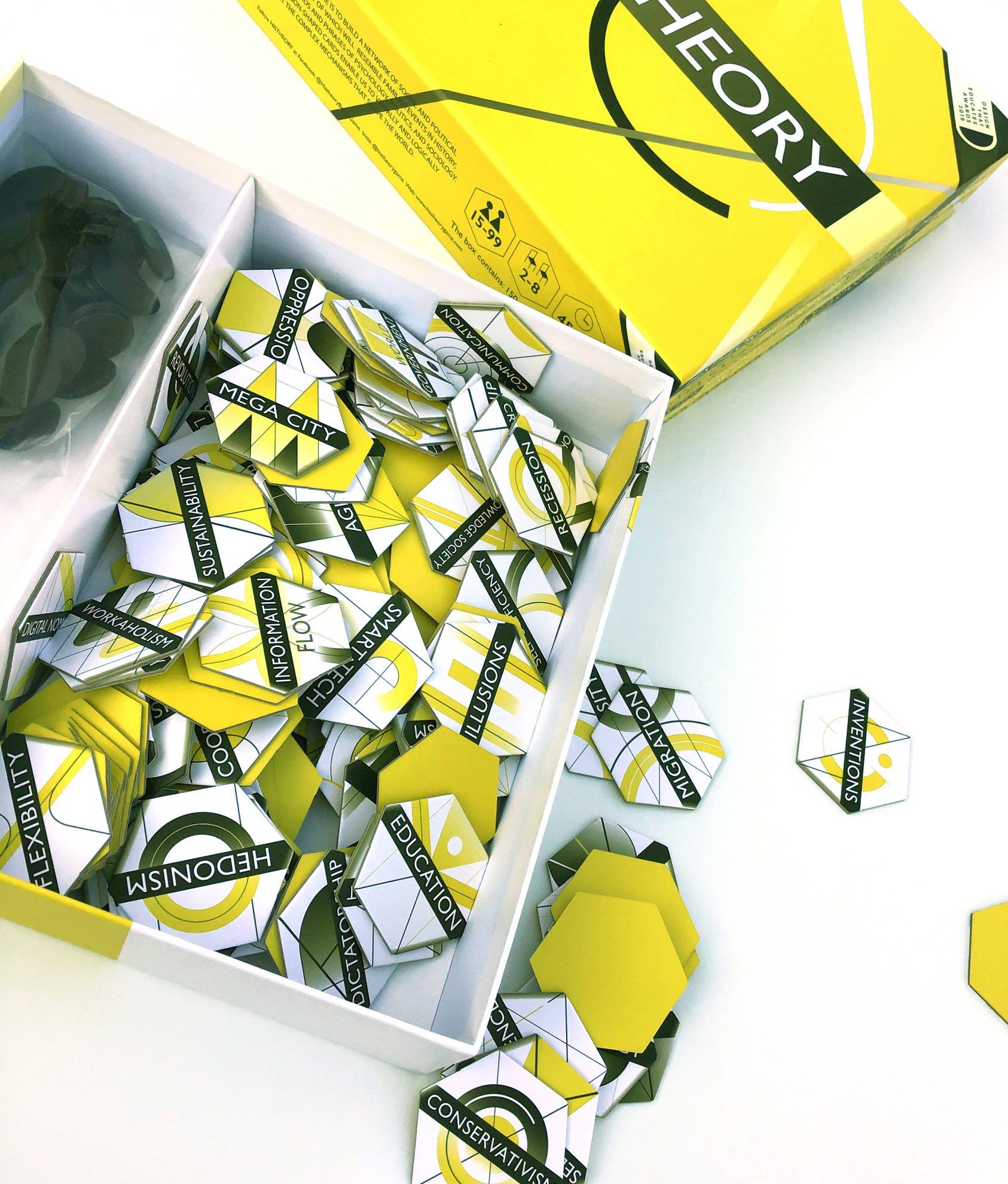
Histheory is recommended from the age of 15 and is ideal for 2-8 players, therefore, when used in a high school class, the students should form several groups before they start building networks. One can find descriptions for several game modes in the box, but in each case the goal is to build social-historical processes, or to fantasize about alternative courses of action with the question “What would have happened if?”. The game comes without exact tasks, only with some thought-provoking questions, like whether we should trust artificial intelligence, or whether we can stop overpopulation – what we would like to use the game for is actually up to us. We can model the events of 1956, the operation of dictatorships or even the Galactic Republic of Star Wars with it.
One of the major strengths of the game is the way it encourages objectivity. By placing the hexagonal cards next to each other, we mentally connect concepts that have some kind of causality between them, regardless of whether we agree with them based on our political views or not. This way, it can easily happen that we notice readings of the concepts of democracy or nationalism that we haven’t realized before.
“When I started to model in the topic of the epidemic, I pulled out the »epidemic« card; I had to place it next to »multiculturalism«, as there is a potential causal link between the two. But when I pulled »expertise« in the next round, I could steer the story towards a more positive direction, as I could connect expertise as a possible consequence to the terms epidemic, multiculturalism and knowledge-based society. These continuous conceptual waves are what give the thrill of the game. The beauty of the game comes from the fact that it doesn’t let you go to the extremes of a political view, but you get to see all sides of each concept. It helps consolidation and getting different opinions arrive at common grounds” – Gyöngyi told us.
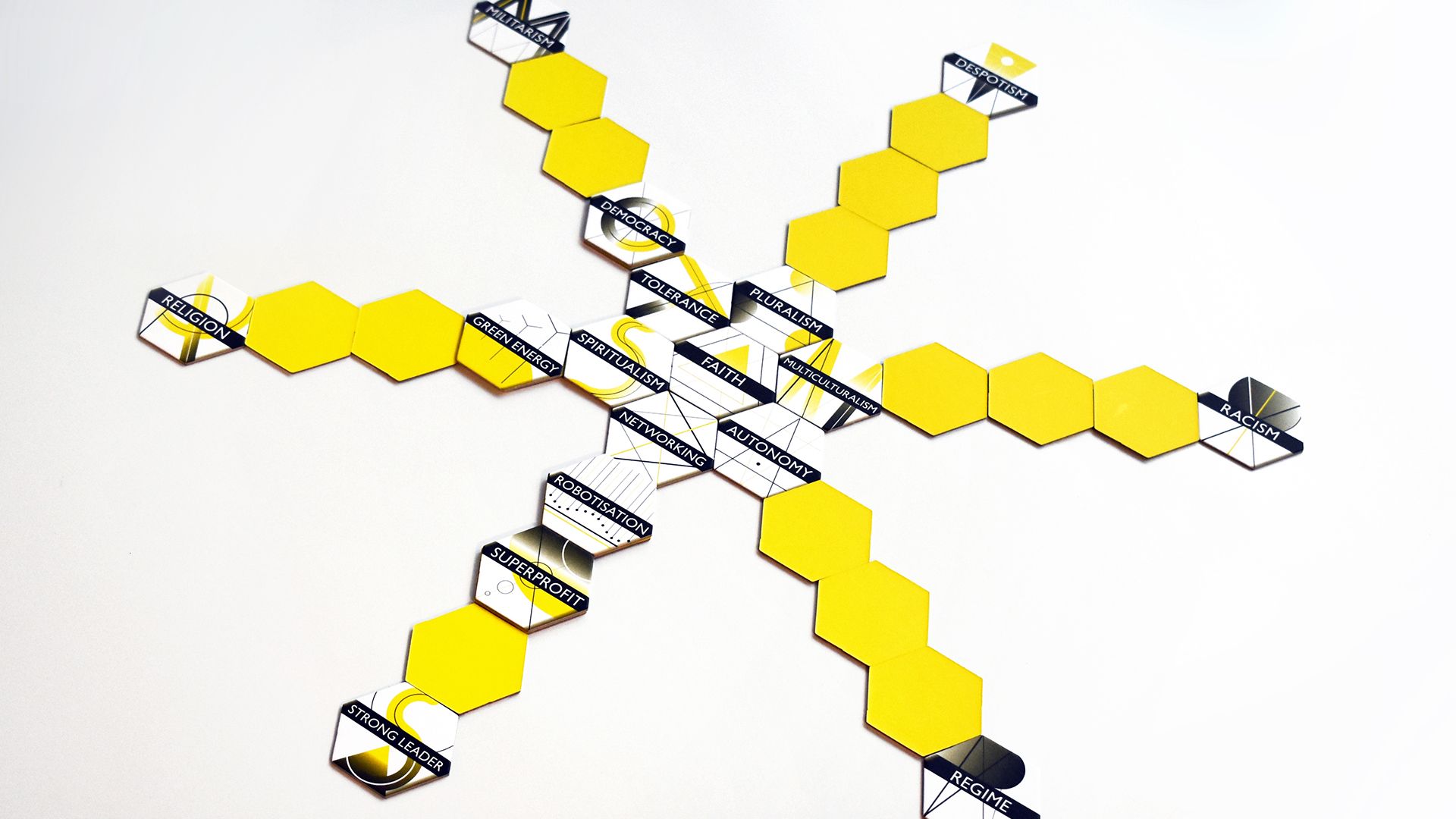
While Gyöngyi explains the game, Edina opens the box and demonstrates a test game. The expression puritanism is the first card on the table: by connecting a few concepts, we quickly arrive at the problems of minorities and the issues of rural development from the life of puritans arriving to the New World. Seeing the gameplay, it’s not classic high school history classes that come to my mind in the first place. Histheory points out exactly that instead of cramming dates, names and facts, through thinking together and polishing our critical approach we can understand the events shaping our world more easily and thoroughly. There are recurring historical patterns that should be recognized, and based on which it should be assessed what patterns a society should follow.
The elements of visual identity are displayed on each card slightly differently, the graphics are always adjusted to the given concept and are many times based on the initial letter of the words. “The design process was as if I had to make 150 logos, but I enjoyed every minute of it“ – Edina says, while she has the reformation card in her hands, in the case of which the upper part of the letter R is displayed as a baroque spiral, with two clean, thin lines starting from it, thus also alluding to the meaning of the concept.
The game has already been tried out by several high schools in Budapest, some of them even bought it; teachers try to incorporate it into their teaching methods, but according to the designers, private individuals are also buying it for their teenager and young adult children, and there are even some who’d like to discuss different world views within the family with the help of the game.
Histheory is currently available with English cards, and English and Hungarian rules, but they are already working on the Hungarian language version as well as the version that can be played online, with the help of augmented reality. The design entailed a lot of testing and many new terms came to the designers’ minds also after the final version has been completed, which could be added to the basic game either in the form of extra packages or blank, customizable bonus cards. As the designers themselves have already played countless games, I was curious about their take on the concepts. Are there cards that are used more frequently or ones that only come up on rare occasions? Are there ones that create situations that divide the players? The designers answered together:
“We realized that the »education« card was the ultimate Jolly Joker in all gameplays. Education can turn every situation, every story, and can even guide us towards a way out in the most challenging situations.”
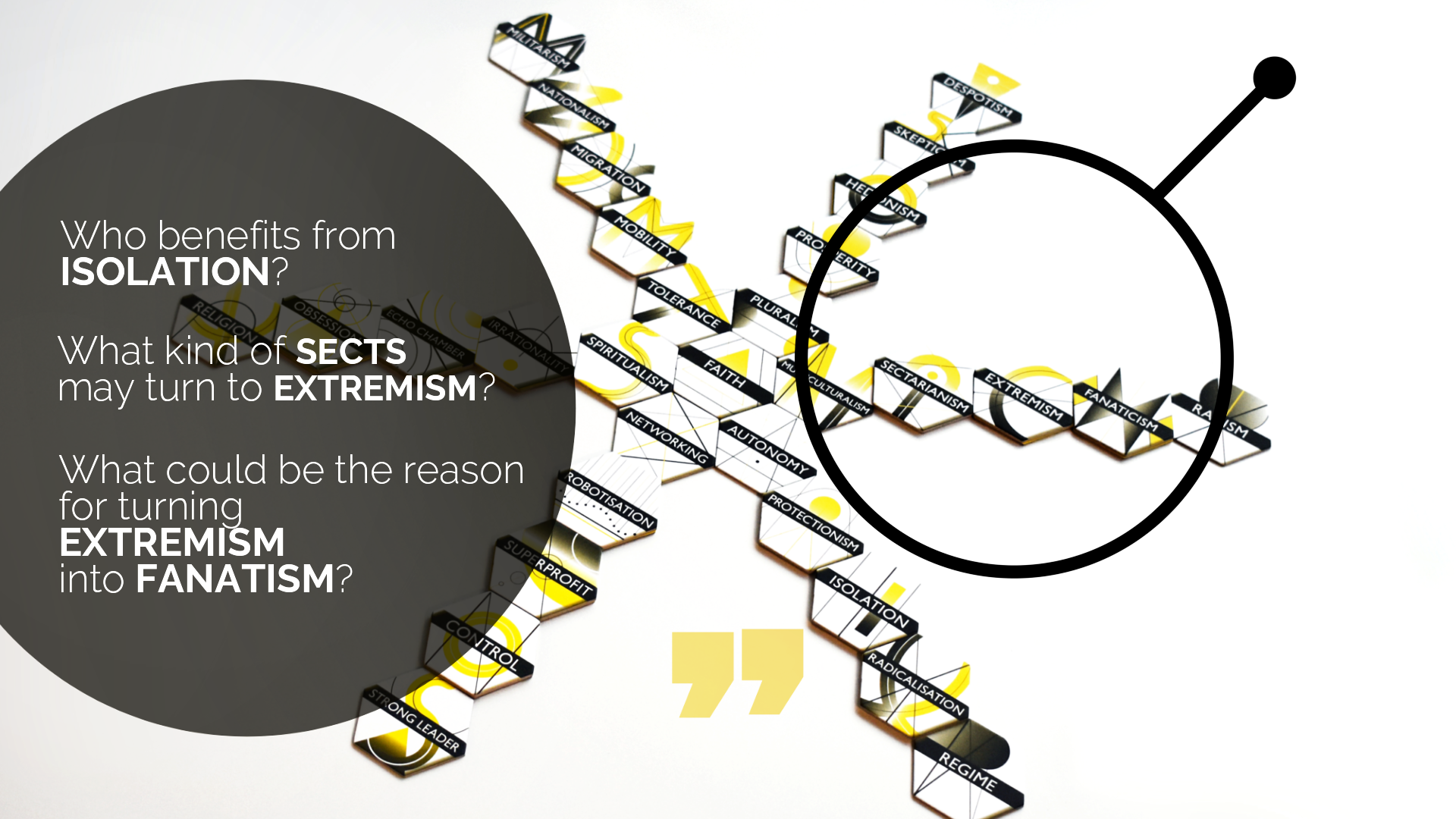
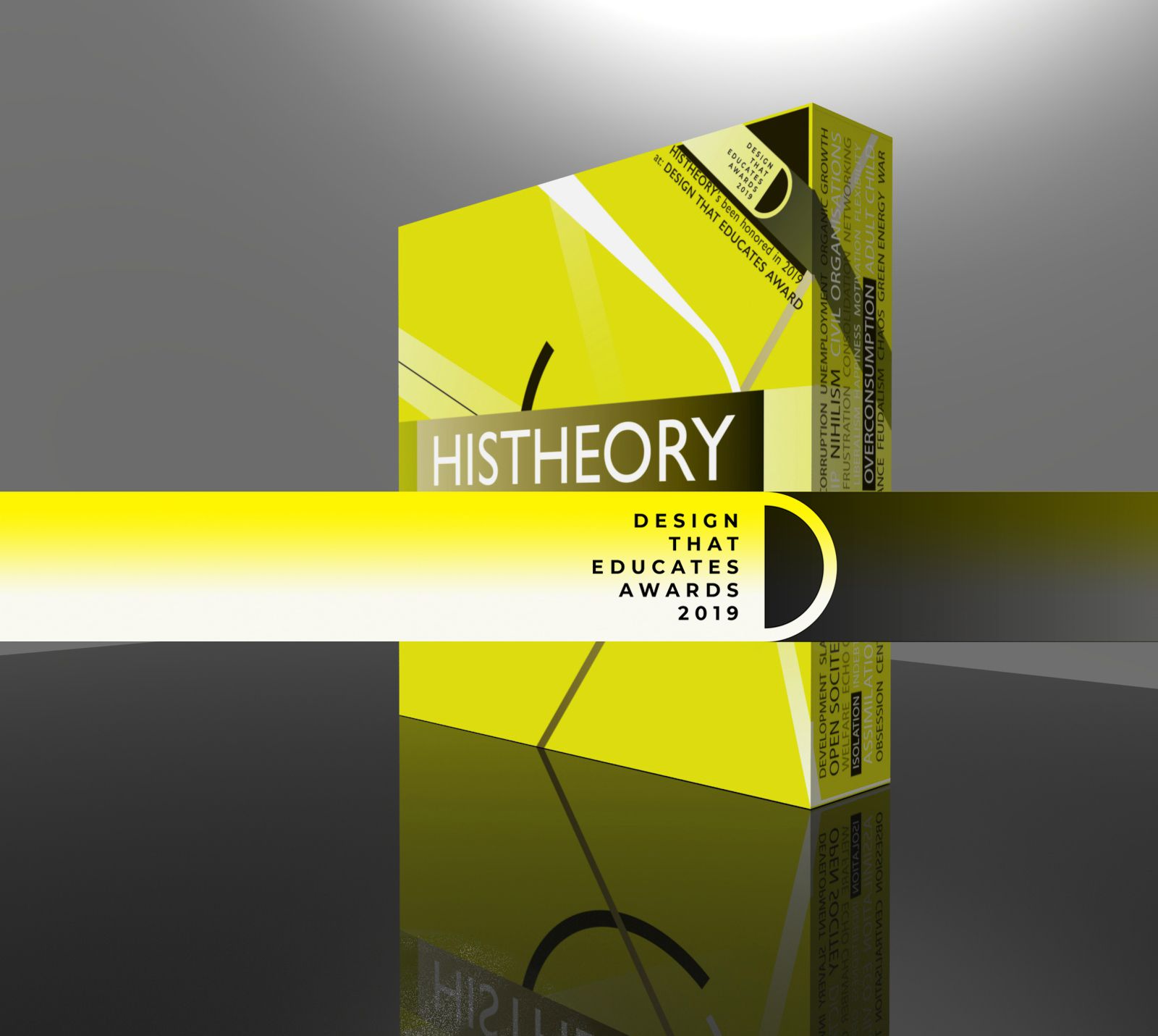
The game is currently available for order from the designers, via Histheory’s Facebook page.
Designers: Gyöngyi Bokor, Zsolt Csizmadia, Edina Mihálkovics
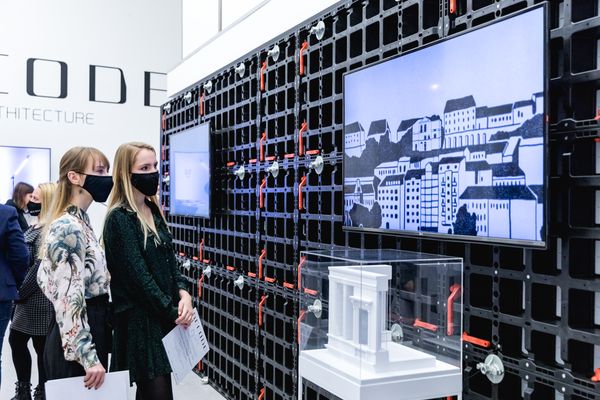
2020 DECODE winners announced

Extraordinary coffee for ordinary days | Koffein Roasters
